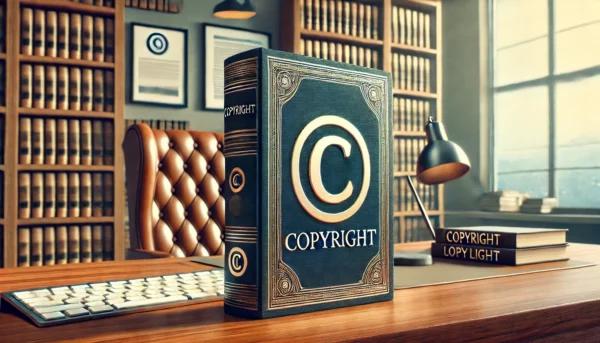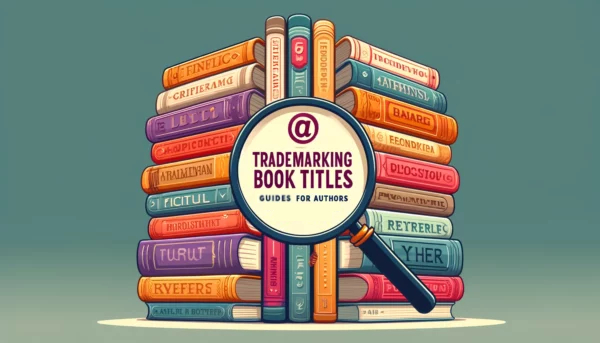Copyright registration is a crucial step for creators to protect their intellectual property, ensuring legal recognition and enforcement of their rights. By registering a copyright, creators can secure exclusive rights to their work, allowing them to control how it is used and distributed. This legal protection is essential for preventing unauthorized use and for seeking remedies in case of infringement.
Copyright registration typically costs $65 for online filings and $125 for paper filings. However, the registration fee is not the only cost involved; additional fees apply for specific services, corrections, and expedited processing. In this article, we will explain these costs in detail and discuss the various factors that influence the total expenses involved in registering a copyright.
Copyright Registration
Copyright registration is the process by which creators officially record their ownership of a work with the Copyright Office. This work can be anything from literary and artistic creations to musical compositions, software, and other original intellectual properties. While copyright protection is automatically granted upon the creation of a work, registration provides a public record of ownership and is a prerequisite for filing an infringement lawsuit in court.
Registering a copyright is crucial for several reasons. First, it grants the owner a legal presumption of validity, simplifying the enforcement of rights against infringers. Additionally, it allows the copyright holder to claim statutory damages and attorney’s fees in the event of litigation, which are not available for unregistered works. This legal framework offers creators significant leverage in protecting and monetizing their creations. Filling out the registration form correctly is essential to avoid additional costs and delays in the registration process.
The costs involved in copyright registration can vary. Basic registration fees differ based on the method of filing—whether online or via paper. Additional costs may arise for specific services like expedited processing, correcting erroneous submissions, and obtaining extra certificates of registration. Special categories, such as group registrations or restored copyrights, also have unique fee structures. Understanding these costs helps creators budget effectively and ensures they can take full advantage of the protections offered by copyright law.
Your Publishing Journey Awaits – Start NowThe Role of the Copyright Office
The Copyright Office, a part of the Library of Congress, is the primary institution responsible for administering copyright law in the United States. Its main functions include registering copyrights, maintaining records of registered works, and providing information and guidance on copyright law to the public. The office plays a pivotal role in ensuring that creators can protect their intellectual property and enforce their rights. The Copyright Office administers various copyright office fees for different services.
The Copyright Office website is an essential resource for anyone involved in the registration process. It offers a user-friendly platform for filing copyright applications online, checking the status of applications, and accessing a wealth of information about copyright law and procedures. The website also features tools for searching the public catalog of registered works, which is invaluable for verifying the originality of creation and avoiding potential infringement issues. Utilizing the website can streamline the registration process, making it more efficient and accessible for creators.
Copyright Registration Process
The copyright registration process involves several steps designed to formally recognize a creator’s rights to their work. The first step is to prepare your work for submission, ensuring it meets the eligibility criteria for copyright protection. The work must be fixed in a tangible form of expression to be eligible for copyright registration. Once ready, you can choose between online and paper filing methods.
Online Filing vs. Paper Filing:
Online filing is the more efficient and cost-effective method, allowing for quicker processing times and lower fees. The Copyright Office’s website provides an electronic filing system (eCO) where applicants can submit their work digitally. This method is user-friendly and offers immediate confirmation of receipt. In contrast, paper filing involves mailing a physical copy of the work and the application form, which can be more time-consuming and expensive due to higher processing fees and longer wait times.
Registration Application and Required Forms:
The registration application requires specific forms based on the type of work being registered.
- Form PA (Performing Arts): This form is used for works of the performing arts, including music, choreography, and scripts.
- Form MW (Mask Work): Used for semiconductor chip products, this form registers the mask works which are the three-dimensional patterns of the layers of a semiconductor chip.
- Form GATT (General Agreement on Tariffs and Trade): This form is used to register works that seek restoration of copyright protection under the Uruguay Round Agreements Act (URAA).
The following fees are associated with these forms and services: legal consultation, copyright registration, recordation services, and related services provided by the U.S. Copyright Office.
Each form requires detailed information about the work, the author, and the claimant. Additionally, the applicant must provide a copy of the work, known as the deposit, which will be stored in the Copyright Office’s records. Once the application and deposit are submitted, along with the appropriate fee, the Copyright Office will review the submission. For practical advice on ensuring a smooth registration, consider our 10 Simple Copyright Tips for Aspiring Authors.
Fees for Copyright Registration
When registering a copyright, understanding the fee structure is essential to manage the costs effectively. The basic registration fee varies depending on the type of registration and the method used for filing. As of the current schedule, the standard registration fee for a single work submitted online is $65, while paper filings cost $125 due to the additional processing involved.
Current Fee Structures:
- Single Work: The fee for a single work submitted online is $65. This covers a variety of works including literary, musical, and visual arts.
- Group Registrations: Group registrations allow multiple works to be registered under a single application, often at a reduced cost. For example, the fee for a group of unpublished works is $85, while a group registration for published photographs costs $55 per application.
- Same Claimant: If the same claimant is submitting multiple works, fees can be lower compared to submitting each work separately.
Additional Costs for Specific Services:
- Expedited Processing (Special Handling): For creators who need their registration processed urgently, the Copyright Office offers expedited processing for an additional fee of $800. This service guarantees processing within five business days, compared to the several months standard processing might take.
- Additional Certificates: If extra certificates of registration are needed, they can be obtained for $45 each. This is often useful for creators who require multiple copies for legal or business purposes.
- Correction of Errors: If an error is made during the registration process, correcting the registration record involves an additional fee. The fee for correcting an error or adding missing information is $130.
- Supplementary Registration: This is used to correct or amplify information in an existing registration, costing $100.
Other Fees:
- Renewal Registrations: Renewal fees apply to works initially registered before 1978, with the current fee set at $125.
- Additional Services: Services such as retrieving copies of deposits, processing withdrawals of applications, and handling other specific requests also incur additional charges, which vary based on the complexity and nature of the request.
By understanding these fees, creators can better plan for the costs associated with securing copyright protection for their works, ensuring they are fully covered under the law.
Your Publishing Journey Awaits – Start NowCopyright Fees for Books vs. Other Creative Works
Copyright fees for books generally align with other creative works like movies, music, poetry, and visual arts. In the U.S., the standard copyright registration fee for a single literary work (including books, poems, or manuscripts) is $65 for online filing and $125 for paper filing. Music compositions and sound recordings follow similar fee structures but may require additional registrations for lyrics, recordings, and performance rights. Movies and screenplays often involve higher legal fees due to multiple layers of intellectual property protection, including script, soundtrack, and visual elements. Artworks, photographs, and graphic novels may qualify for group registrations (e.g., a collection of illustrations), which can reduce overall costs. Poetry collections and anthologies can also be registered as a group, making them more cost-effective than individual poem registrations. Additional fees apply across all categories for expedited processing, corrections, and supplementary registrations.
Do Different Types of Books Have Different Copyright Fees?
No, copyright fees remain the same for all types of books, whether they are fiction, non-fiction, children’s books, textbooks, or graphic novels. The primary difference is how content is classified—for instance, a graphic novel with extensive illustrations may qualify under visual arts registrations rather than literary works. However, all books fall under literary work registration, and the fee structure remains consistent across genres.
Special Categories and Additional Fees
Certain categories of works have unique fee structures and additional costs that creators should be aware of. For example, registering a group of unpublished photographs costs $85, allowing photographers to protect multiple works under a single application, making it a cost-effective option. If you plan to use existing copyrighted material in your work, it’s essential to understand the legal implications
Beyond photographs, non-photographic databases, such as data compilations or software, typically incur a $65 online registration fee. Mask work registrations—which protect semiconductor chip designs—have a specialized fee of $125, reflecting their importance in the tech industry. GATT (General Agreement on Tariffs and Trade) registrations, covering works seeking restored copyright protection under the Uruguay Round Agreements Act (URAA), have a distinct fee structure, usually around $100.
For restored copyrights, the base fee is $100, which applies to works that previously fell into the public domain but are eligible for legal restoration under international agreements. Additionally, renewal registrations for works originally registered before 1978 cost $125, ensuring continued copyright protection.
Understanding these special categories and their fees is crucial for creators looking to protect all aspects of their intellectual property effectively and navigate the complexities of copyright law with confidence.
Online vs. Paper Filing Costs
When registering a copyright, the method of filing—online or paper—significantly impacts the cost and efficiency of the process. Online registration is generally more cost-effective, with the standard fee for a single work being $65. This method is faster and more convenient, offering immediate confirmation of receipt and quicker processing times. The electronic Copyright Office (eCO) system streamlines the application process, making it easier to complete and submit forms.
In contrast, paper filing incurs higher fees, typically $125 for a single work. The paper method involves mailing physical copies of the application and work, leading to longer processing times and higher costs due to manual handling. While paper filing may be necessary for certain types of work or under specific circumstances, it is generally less efficient and more expensive.
Other Services and Fees
In addition to standard registration fees, the Copyright Office offers various services that incur additional costs. Document recording, which involves recording agreements and other legal documents related to copyright ownership, has a fee of $125. This service ensures that legal transactions and transfers of rights are officially documented and recognized.
For creators who need extra copies of their copyright certificates, the fee for obtaining additional certificates is $45 per copy. These certificates are often necessary for legal or business purposes, providing official proof of copyright registration.
Shipping slips, which are used for the physical delivery of documents and materials to and from the Copyright Office, also come with associated costs. The fee for a shipping slip is typically minimal, covering the cost of handling and delivery.
Accessing the online public catalog data, which allows users to search for and view records of registered works, is generally free. However, there may be costs for certain advanced searches or for obtaining copies of specific records. Other online filings, such as supplementary registrations or requests for expedited processing, also have additional fees. Supplementary registrations cost $100, while expedited processing incurs a significant fee of $800, reflecting the urgency and priority given to these requests.
These additional services and fees ensure comprehensive access to copyright resources and official documentation, supporting creators in managing and protecting their intellectual property effectively.
The primary benefit of online filing is its convenience and lower cost, whereas paper filing can be useful for those who prefer traditional methods or need to submit work not easily digitized. Understanding these differences helps creators choose the best option for their needs.
Legal and Attorney Fees
While many creators handle copyright registration independently, legal and attorney fees may be necessary, particularly in complex cases. Attorney fees can vary widely, often ranging from $200 to $500 per hour, depending on the attorney’s expertise and the complexity of the case. These fees cover legal advice, assistance with complicated filings, and representation in disputes or infringement cases.
Additional costs might include filing fees for legal documents and other related expenses. Investing in legal assistance ensures accurate registration, maximizes copyright protection, and provides valuable support in navigating intricate legal issues. For self-published authors, understanding potential legal challenges is essential
Your Publishing Journey Awaits – Start NowSo How Much Does Copyright Protection Cost?
In summary, registering a copyright involves several costs, starting with the basic fees for online ($65) and paper ($125) filings. Additional expenses include fees for expedited processing, correcting errors, and obtaining extra certificates. Special categories like unpublished photographs and restored copyrights have unique fee structures, while other services such as document recording and shipping slips also add to the total cost.
Understanding these fees is crucial for creators to budget effectively and ensure comprehensive protection for their intellectual property. The Copyright Office and its website offer valuable resources to streamline the registration process and provide necessary guidance. Legal and attorney fees, though optional, can be beneficial for complex cases, ensuring accuracy and robust protection.
By being aware of all potential costs and services, creators can make informed decisions, safeguarding their works efficiently and taking full advantage of the legal protections provided by copyright registration.
FAQs – Cost to Copyright a Book
Q: How much does a US copyright cost?
The cost of registering a copyright in the U.S. depends on the method of filing:
- Online filing: $65 for a single work
- Paper filing: $125 (higher due to additional processing costs)
- Group registrations: $85 for unpublished works, $55 for published photographs
Additional fees apply for expedited processing ($800) and corrections ($130).
Q: How much does copyright cost in the UK?
In the UK, copyright protection is automatic and does not require formal registration. However, creators can use paid services like:
- UK Copyright Service: £39.50+ for official timestamped records
- Intellectual Property Office (IPO) for trademarks or patents: Fees vary
While registration is optional, maintaining proof of creation (e.g., timestamped documents) can help in legal disputes.
Q: Do you have to pay for copyright?
No, copyright is automatic when you create an original work in a fixed form. However, formal registration costs money and provides legal advantages, such as:
- The ability to sue for copyright infringement
- Statutory damages and attorney’s fees in the U.S.
- A public record of ownership
Q: How long does a copyright last?
Copyright duration depends on the type of work and jurisdiction:
- U.S. & UK: Life of the author + 70 years
- Works created for hire (corporate-owned): 95 years from publication or 120 years from creation (whichever is shorter)
- Older works (pre-1978 in the U.S.): May have different renewal rules
Q: How do I register a copyright?
The process varies by country, but in the U.S.:
- Prepare your work: Ensure it’s original and fixed in a tangible form.
- Choose a filing method: Online (faster, cheaper) or paper (slower, more expensive).
- Complete the form: Submit the required information (author, title, description).
- Pay the fee: $65 (online) or $125 (paper).
- Submit a copy (deposit): Required for books, music, and other tangible works.
- Wait for processing: Takes several months, unless expedited ($800 fee).
After approval, you receive a certificate of registration.
Q: How much does copyright infringement cost?
Infringement costs vary based on the case:
- Statutory damages (U.S.): Up to $150,000 per work if willful infringement is proven.
- Attorney fees: Can range from $200 to $500 per hour or more.
- Settlement costs: Some cases settle for thousands to millions of dollars.
- Loss of revenue: If your work is stolen, you may lose profits from unauthorized use.
Q: How much does it cost to register a book with the Library of Congress?
Standard copyright registration fee: $65 (online), $125 (paper)
- Mandatory deposit requirement: Two copies must be sent to the Library of Congress for published books.
- Expedited processing fee (optional): $800 for urgent cases
Q: What is the difference between copyright and trademark?
Copyright protects original works (books, music, art, films, software) from being copied or distributed without permission.
Trademark protects brands (logos, slogans, business names) from being used by others in a way that could confuse consumers.
Duration:
- Copyright: Lifetime of author + 70 years
- Trademark: Can last indefinitely if renewed periodically
Cost: Copyright registration is $65–$125, while trademarks can cost $250–$400+ per class of goods/services.
Your Publishing Journey Awaits – Start Now






